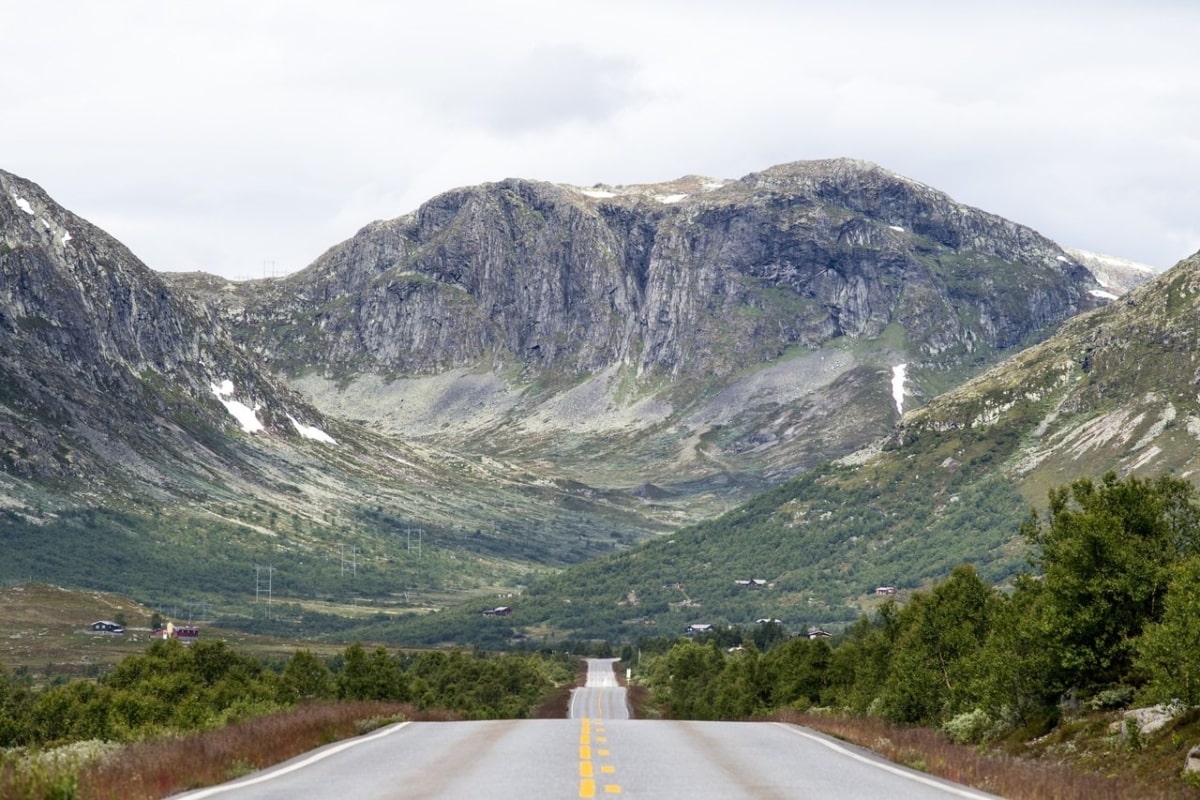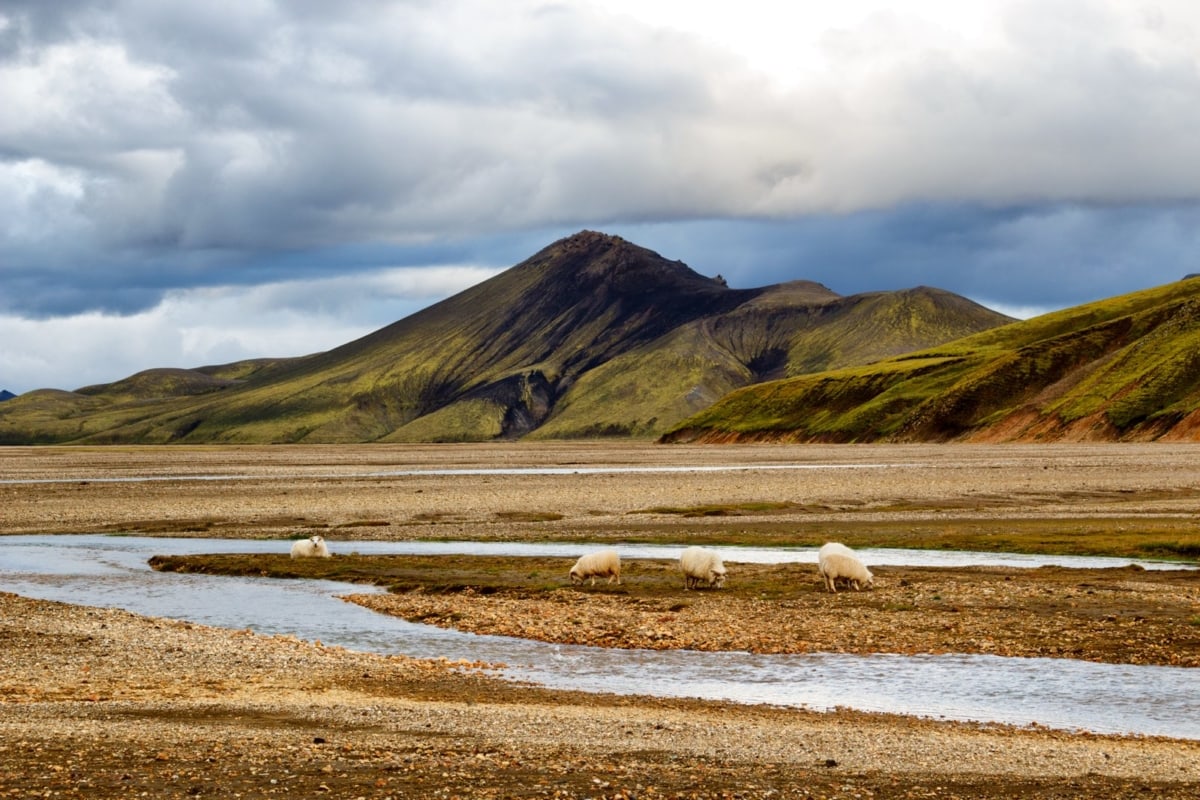You have the choice to manifest your own reality. If traveling the world sounds enticing but implausible, perhaps all you have to do is change your mindset.
Your Mindset Will Help You to Travel the World, Not Money or These Other Excuses
Traveling the world—those are three words that, when strung together, fill one’s head with visions of blonde beaches. Or snow-capped mountains. Or cobblestone streets thronged with food stalls erupting with exotic smells.
Society conditions us to think those sites can only be temporary, that we work so vacation can reward us.
But what if life itself could just be the reward? What if you could always spend your afternoons meandering into uncharted jungles or tasting foods foreign to you for every meal?
What if you could wake up every morning in a bungalow shrouded in the cool shade of plentiful palm trees or at the base of some small ski town in a solar-powered cabin?
You totally could.
I recently found myself on an EVA Airways flight 34,000 feet somewhere over Alaska with almost 20 hours of air travel ahead of me. Seat 52 H. Final destination: Bangkok.
I’d imagined the day for years, but it took years to tell myself that I could do it—that I could travel the world and that my entire life could be as rewarding as the vacations I’d worked so hard to earn.
I left my editorial career in New York City, packed up my apartment and stored it with family, and I booked a one-way ticket to Thailand with no fixed plans. My only plan, for the first time, was to make no plans—to live unreservedly in the moment all over the world.
If it feels like I making it sound easy, it’s because it is that easy.
Of course, it’s important to note that, I’m an able-bodied woman in good health, with no family care-taking obligations holding me back—and I’ve been fortunate to have gotten a great education, which spiraled into this freelance career that affords me this lifestyle. So I’m not here to undermine others’ different experiences, and I recognize the privilege behind my perspective. I’m just here to implore those who are wearing similar shoes to exercise their freedom.
Because once you quit your excuses, you quit living a life of mediocrity and begin living the life you always wanted.

1. Remember That Time Is on Your Side
Perhaps it feels like there are not enough hours in the day, and you’ve no time to even entertain taking a vacation. You’re drowning in emails, the little red notifications on your phone are starting to induce some serious anxiety and your Google Calendar is blocked up with back-to-back meetings that you’re almost certain are going to run into each other.
But what if you could turn that all off, if only for a few days—maybe even a week or two? The fact is that you can if you plan right.
You Have Vacation Days for a Reason
We’re a culture of self-prescribed “work martyrs,” and the idea that no one could do our jobs while we’re away encumbers us. Otherwise, we’re troubled by the perception that we’re indeed replaceable, according to Project: Time Off’s report, State of American Vacation 2017.
High stress, guilt, and workload concerns keep us in the office. But the fallacy that “work ethic” and “work martyrdom” are synonymous is pervasive—and toxic.
Paid time off (PTO) is a thing for a reason. Sure, Americans are rarely granted enough of it. But when we are, we seldom take advantage of it.
On average, employers in the United States offer 20 paid holidays, sick days and personal days, and two weeks of vacation per year. But the average American employee who can take PTO took just over two weeks off in 2016—we’d neglected to take the 662 million vacation days that were left unexploited.

American workers who succumb to various pressures—self-imposed or otherwise—are wrongfully deemed to be ahead of the game. In reality, employees who don’t file their PTO are not necessarily more invested; rather, they’re no more likely to earn promotions and are actually less likely to receive raises or bonuses.
But studies prove that taking time off actually leads to higher productivity and overall morale—which, in turn, leads to greater employee retention.
Ultimately, traveling promotes a renewed sense of purpose outside of the office, allows time for otherwise neglected self-care rituals like much-needed sleep and relieves stress, which reduces the risk of developing both mental and physical health risks over time.
So take the time that’s allotted to you; you do technically have it, and (smart, worthy) employers will encourage you to take advantage of it.
2. Avoid the Stress of Travel by Planning Ahead
If you still think have too much work or too many projects to get done before you can travel, power off the unnecessary, distracting technology and get it done. We walk around in a culture short-circuited by relentless demands with our noses stuck in our smartphones, answering emails, scheduling Skype calls and pinging colleagues memes before we even get to the office.
We’re all harried, short on time; there’s not enough hours in the day. But there are 1,440 minutes in a day. And I’m willing to bet that, if you put your phone away for just a few of them, you’d feel like you’ve gained a heck of a lot more time.

You can also layer your calendars so you can find open opportunities to travel. Block those days to avoid meeting invites, allocate your workload to colleagues by making a coverage plan in advance of your travels and put up an out-of-office notice when you do finally go so you can actually enjoy it.
The truth is that we make time for the things we want to do—we make time for our friends and family, and it’s about time you make time for you, too.
3. Don’t Make Money the Enemy—Just Be Mindful
Contrary to popular belief, you don’t need a trust fund to traverse the globe. You only need to be mindful of your money habits.
Money is neither your enemy, nor should it be an excuse. (Assuming you come from a background in which you, feasibly, could travel if you made it a priority.) And even if you don’t make enough money, there are a million and one ways to make more.
Ramit Sethi, renowned financial advice-giver, states, “There’s a limit to how much you can save, but there’s no limit to how much you can earn.” Get a raise. Start a side-hustle. Learn a skill and find a better job. Nobody is limiting you but yourself.
There isn’t a shortage of money in the world, so get out there and get what you need. And if that mindset doesn’t work for you, then accept what you have and learn to be more frugal. It’s that simple.
Be Mindful of a Travel Budget
You can save ahead of time by creating a travel budget that’ll work for you—everyone has different expenses and incomes, so take all the advice you hear with a grain of salt and come up with a budget plan that makes sense for you.
There are apps like Mint to help delineate your budgets and alert you when you’re close to going over. But if you regularly check your accounts and keep mindful of your spending habits, you should be able to do just fine on your own.
Be a Sensible Spender
You may also want to write down your travel priorities, so you’re mindful of them, too. When you’re equipped with a tangible, written list of your travel goals, you’re more likely to achieve them—instead of inadvertently changing them in your head all the time when you don’t meet them.
Are you a history buff? Do you want to hit every tour a city has to offer or would you rather chill out at the local watering hole and people watch? Is trying new food a large part of why you travel in the first place or are you content with the free breakfast at your hotel or hostel?
If you want to stay in the city’s center, you may need to save more money than the backpacker who’s posting up in a hostel bed or surfing on locals’ couches.
Keep an Open Mind About Travel Jobs if You Need One
You also have the option to make money while traveling if you put in the effort and keep an open mind about the work you’ll be doing. The good news is that finding work overseas can oftentimes be even easier than finding work at home—that’s because many countries are in demand of English speakers.
The most popular overseas jobs include teaching English, supporting a family as an au pair, WWOOF-ing (World Wide Opportunities on Organic Farms, a network through which independent farms welcome international workers in exchange for food and accommodation), fostering tourism as a hostel employee and working as a freelancer in some way.
4. There’s Nobody to Blame But You
It’s simple. Don’t wait for others to join you or you’ll never go anywhere. (Unless you have equally ambitious, adventurous friends. Ones who just so happen to be on similar schedules as you with zero conflicting obligations.)
When you rely on other people, you inevitably start to take on their dilemmas as your own and, with conflicting schedules, dissimilar interests, varying priorities, your plans will seldom come to fruition.
Never allow yourself to miss out on an experience for excuses that don’t belong to you.

Friends’ fears, inabilities or apprehensions don’t restrict you, and their itineraries don’t confine you. You can do anything you want to do, whenever, wherever and however you want to do it. And that’s pretty damn liberating, isn’t it?
Besides, when we surround ourselves with familiar faces we rarely break out of our comfort zones. Sticking with just your friends while visiting new places means that you can (and probably will) become a bystander rather than a part of it all.
Surround yourself with strangers and you’ll be forced to engage and immerse yourself in the situation. Whether they’re locals or bunkmates in a hostel dorm.
5. Be Fearless in the Face of Adversity and Change
“Maybe everybody in the whole damn world is scared of each other.” When traveling, I often think back to this quote from John Steinbeck’s 1937 classic Of Mice and Men. I dwell on it quite often because I think it’s true—a lot of people in this world are indeed scared of each other.
But we have much reason to be, even though it may seem like it at times. I mean, we do live in a world inundated with terror and endemic terrorist attacks. We live in a world full of insurgency and a spate of pandemic diseases that claim lives across the globe.

This amalgamation makes too many of us reluctant to leave the cities of our comfort. We’re perpetually paralyzed by the “what if.”
What if something bad happens?
Here’s the thing: We can’t live our lives wondering about what could go wrong. We’ll never know what good could come of the risks we take.
It’s time to stop existing and to start living without succumbing to your fears.
Sure, the United States government issues travel alerts and warnings regularly, discouraging Americans from visiting certain countries. But it’s important to remember that the United States has not-so-favorable areas, too. Four U.S. cities—St. Louis, Baltimore, Detroit and New Orleans—have placed among the top 50 most dangerous cities in the entire world.
So, yes, we’re often at risk when we travel, but the truth is that anything can happen anywhere. The only choice we have is to live our lives fearlessly, or leave this world someday wishing we had.
6. Keep an Open Mind About What’s Out There—You’re Going to Need It
First of all, you won’t hate it. You may hate aspects of traveling. Like living out of a backpack or sharing a bunk with loud hostel roommates or eating sheep testicles.
But if you hate everything about traveling or the places to which you’re going, that’s on you; there’s beauty to be found in everything and everyone.

Traveling will inevitably teach you that, anyway. That’s because you become equipped with an open mind. It happens when you’re inevitably hit with the revelation that people, places and things are different everywhere you go. It doesn’t make one better or worse than the others—it just makes us all inimitable.
And that’s a good thing because how boring would the world be if we were all the same?
Besides, you’ll never know if you “hate” anything unless you try it. You’ll never know if you “hate” a certain food unless you throw it up. You’ll never know if you “hate” a particular climate unless you go somewhere. Then you’ll experience the nightmarish things it’ll do to your skin. You’ll never know if you “hate” a language until you listen to one long enough it makes your ears bleed.
You’ll learn your likes, dislikes, strengths, limits, comforts and discomforts only by doing. And, when you’re off the grid and unencumbered by the burdens of everyday life and the influences of others to whom you so often listen, you will have time to reflect on those discoveries and truly get to know yourself.
Make time, make money, make new friends, make peace—but, whatever you do, it’s time to stop making excuses.
READ NEXT: How Traveling the World Will Change You


“Stop making excuses.” This article was beautifully written.
Wow. This was a great article. I must share!
Hi Annamarie,
Great article on the mindset to get into travelling the world! Thanks for sharing.
Bavin